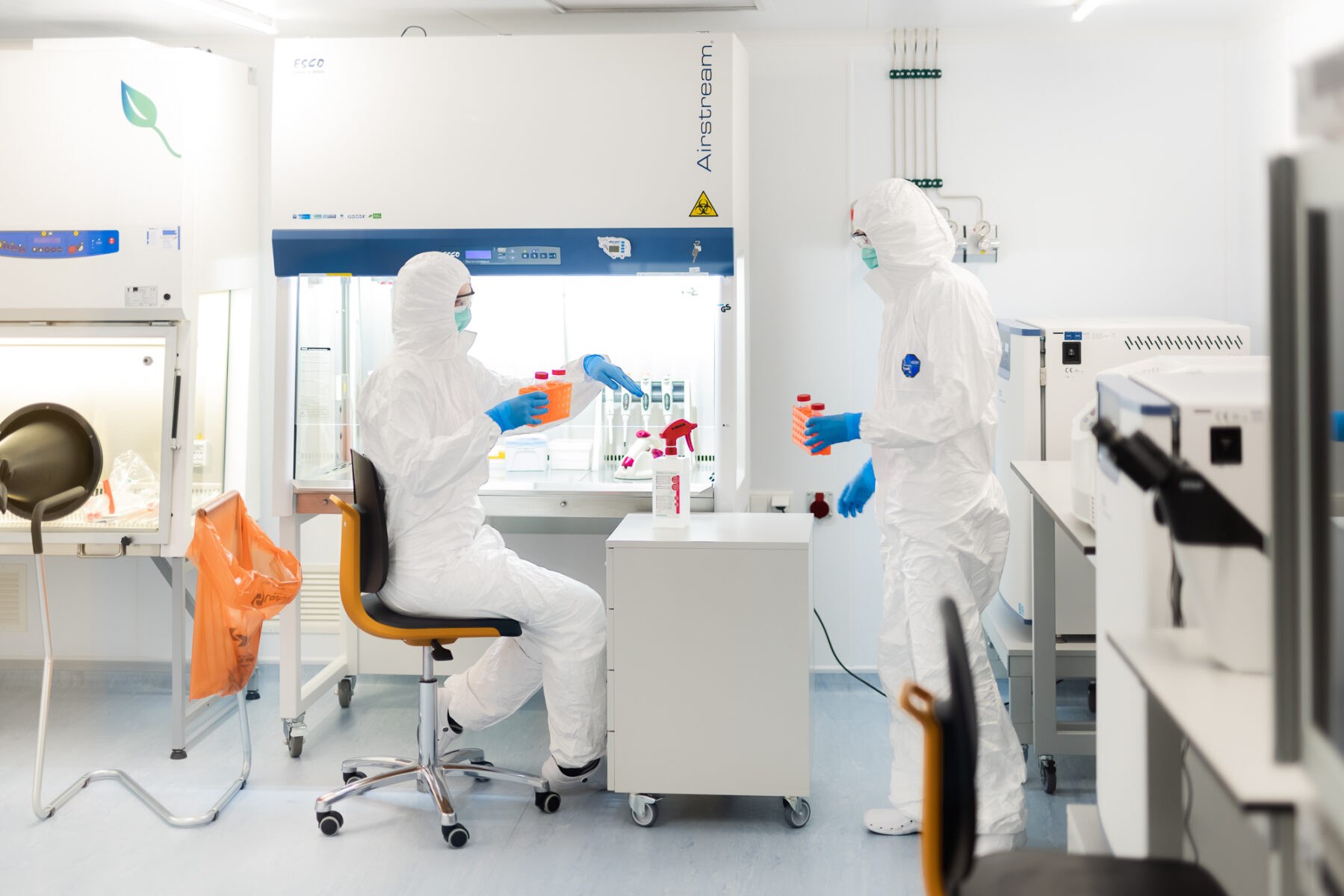Medical fertilization
Expert advice
Latvian medical institutions, which focus on the diagnosis and treatment of infertility for women and men, and implement medical insemination, have gained considerable experience in the last twenty years, which contributes to very high positive results. When analysing the overall results of Latvian clinics, the treatment results convincingly exceed the 50% effectiveness rate. In the under-30 age group, one of the best rates among European countries has been achieved – the effectiveness of medical assisted reproduction exceeds 70%. The high positive rates, highly professional specialists and the latest technology are the reasons why more and more people are coming to Latvia for assisted reproduction services.
Dr Violeta Fodina from one of the leading clinics in the Baltics – IVF Riga explains the process: “Of course, diagnostics is initially performed, for both women and men, as needed. For the diagnosis of infertility in women, hormonal analyses, gynaecological and abdominal ultrasonography, as well as hysteroscopy are performed. Based on the results of examinations, a course of infertility treatment is prescribed.
Infertility can often also affect men. And, most importantly, male infertility treatment can be effective and with good results. In men, hormonal tests are performed, as well as a spermogram, which measures the amount and motility of sperm that affect the ability to fertilize an egg. If we are talking about medical insemination itself, it is one of the ways to treat infertility. Clinics offer both IVF medical insemination and IVF with donor cells, as well as ICSI, which means that a single sperm is injected into a healthy egg. When it comes to IVF manipulation, a woman must undergo a course of ovarian stimulation (10-12 days) using special hormonal preparations. During this time, the woman needs ultrasonography control 2-3 times. When the follicles reach a size of 18-20 mm, an ovarian maturation stimulant is prescribed and the day of ovum collection is planned. A puncture is performed – under temporary anaesthesia – a manipulation is performed, as a result of which the received eggs are placed in a special environment under laboratory conditions and fertilized with sperm. The embryo is then observed growing and dividing, and on the third or fifth day, the embryo(s) are placed in the uterine cavity (embryo transfer).
After the embryo(s) have been transferred to the uterus, there is no need to follow a special procedure, the patient can return home or to work in peace. However, not least, after the procedure the patient should avoid physical or emotional exertion, stress. After the manipulation, a course of medication is prescribed, which must be followed until the pregnancy test is performed. A pregnancy test (determination of the level of HCG in the blood) is performed on day 14 after the transfer of the embryo(s). Depending on the results of the test, your doctor will decide if your medicine should be continued or stopped.
If several embryos are prepared during the IVF process, it is also possible to freeze and store these embryos. In 2014, the first Genetics Centre in the Baltic States and Northern Europe was opened at the iVF Riga, with a modern laboratory and extensive opportunities to perform various types of in-depth genetic testing, and already at the embryonic stage to perform examinations and detect genetic diseases. Today, the Genetics Centre continues to develop its specialization in the following areas: diagnosis of infertility and problematic pregnancy / termination of pregnancy; oncology diagnosis (genetic testing of inherited tumours); lifestyle genetics (Viva Genomics). Also, a Stem Cell Centre has been developed.
Even in the absence of sperm in a man’s semen, the man has the opportunity to become a biological father. In case of an obstructive azoospermia, TESA / PESA manipulation (an acquisition or aspiration of a sperm from the testicles or their appendages with a needle) are available. If the spermatozoa are very poorly formed in the testicles and therefore do not reach the sperm, testicular biopsy (TESE) can be performed, where small incisions are made in the testicle to extract sperm. If no sperm are found, there is a possibility for a treatment with a donor sperm.”
The clinics are equipped with the latest diagnostic and laboratory equipment created by leading manufacturers in the field. Innovative technologies ensure the selection of high-quality embryos, for example, using the revolutionary incubator EmbryoScope (a new type of incubator that allows to monitor embryo cell division while the embryos are still in the incubator).
Cost comparison of the medical fertilization in our clinics:
-
Classical medical assisted reproduction:
- Private Clinic Your Doctors: 1300 €
- Clinic EGV: 1260 €
-
With donor eggs:
- IVF Riga: 7150 €
- Clinic EGV: 5370 €
- Private Clinic Your Doctors: 3273 €
-
ICSI (Injection of a single sperm into the cytoplasm of an egg, a medical method of fertilisation)
- IVF Riga: 3695 €
- Clinic EGV: 1710 €
- Private Clinic Your Doctors: 1600 €
-
Donor sperm cost comparison
- IVF Riga: 605 €
- Clinic EGV: 400 €
- Private Clinic Your Doctors: 327.30
-
Clinics we recommend for medical assisted reproduction services:
Photos iVF Riga Holding.
- Choose a service
- Fill out the form
- Receive an individual response